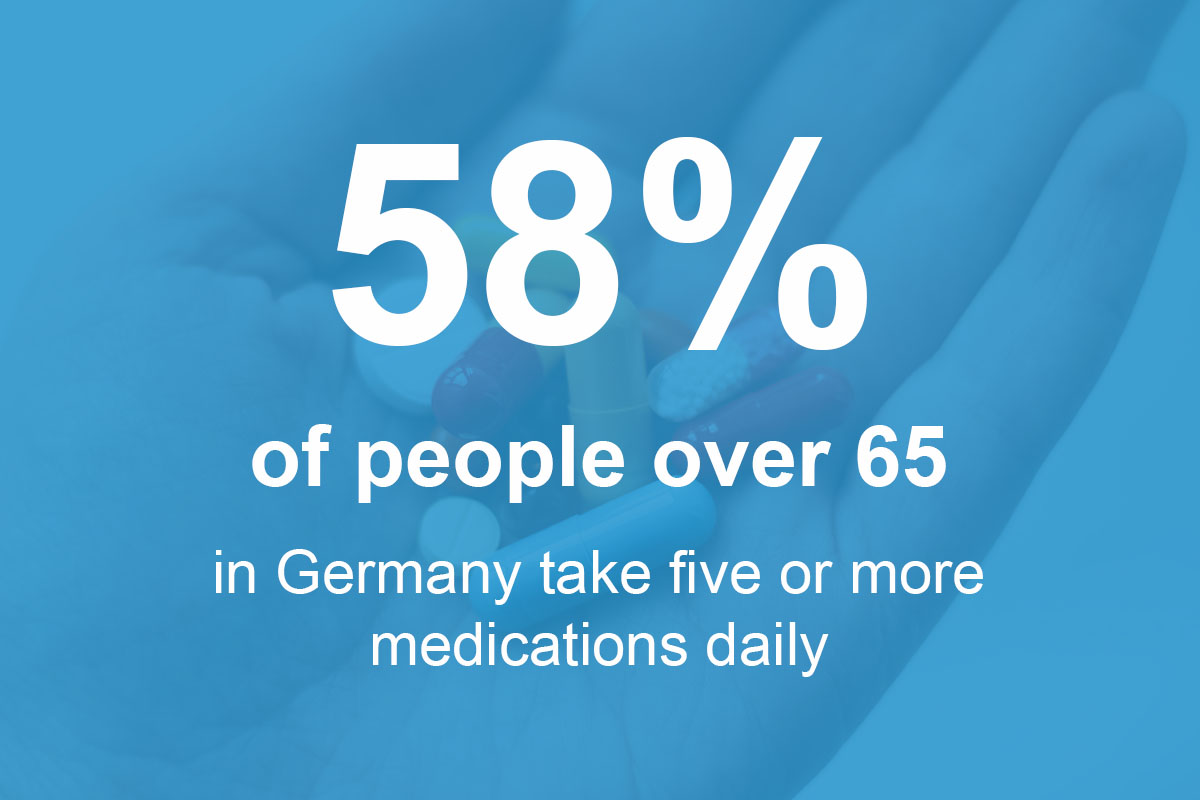Seniors Often Receive Too Many and Inappropriate Medication Combinations
More than 50% of individuals over 65 take five or more medications daily. Particularly alarming is that many of these patients are prescribed medications that may be unsuitable for them. This is confirmed by a study conducted by Marion Bennie, a Professor of Clinical Pharmacy at the University of Strathclyde in Glasgow, UK, along with her colleagues, published in the British Journal of Clinical Pharmacology.
In 2018, more than 1.5 million patient records of individuals over 65 years were analyzed in six European countries to examine the extent of polypharmacy and the quality of medication prescriptions. The focus was particularly on the burden of potentially inappropriate medication combinations. The study concentrated on drugs such as proton pump inhibitors (PPIs), benzodiazepines, opioids, and antipsychotics. The findings were published in May 2024.

The Results Are Alarming
Der Studie zufolge erhielten 42,3 % der Polypharmaziepatienten in Deutschland Protonenpumpeninhibitoren, 5,6 % Benzodiazepine, 15,3 % Opioide und 4,5 % Antipsychotika, von denen bekannt ist, dass sie im Zusammenhang mit besonders vielen unerwünschten Arzneimittelwirkungen stehen. Diese Medikamente sind in der Arzneimitteltherapie jedoch unverzichtbar, weshalb ein klarer Bedarf besteht, die Arzneimitteltherapiesicherheit (AMTS) regelmäßig zu überprüfen.
In der untersuchten Patientengruppe waren besonders Patienten gefährdet, die zusätzlich zu ihrer Haupterkrankung an Diabetes und chronischen Atemwegserkrankungen leiden.
Die Verschreibung potenziell ungeeigneter Arzneimittel und die hohe Zahl verschriebener Medikamente erhöhen das Risiko unerwünschter Arzneimittelinteraktionen und führen tendenziell zur Beeinträchtigung der Lebensqualität der Patienten.
Unsere PGXperts Lösungen – Wie PGXperts Ärzte bei der Überprüfung der Arzneimitteltherapiesicherheit untersützt!
At PGXperts, we offer innovative solutions to assist healthcare professionals in reviewing drug therapy safety while considering pharmacogenetics. Through the analysis of genetic factors, potentially dangerous drug interactions can be identified and medication selection and dosing tailored to individual patients.
In this way, we are making an important contribution to patient safety.
Discover how PGXperts PRiM supports physicians in hospitals in reviewing complex medication scenarios:
Find out more about the study here.

